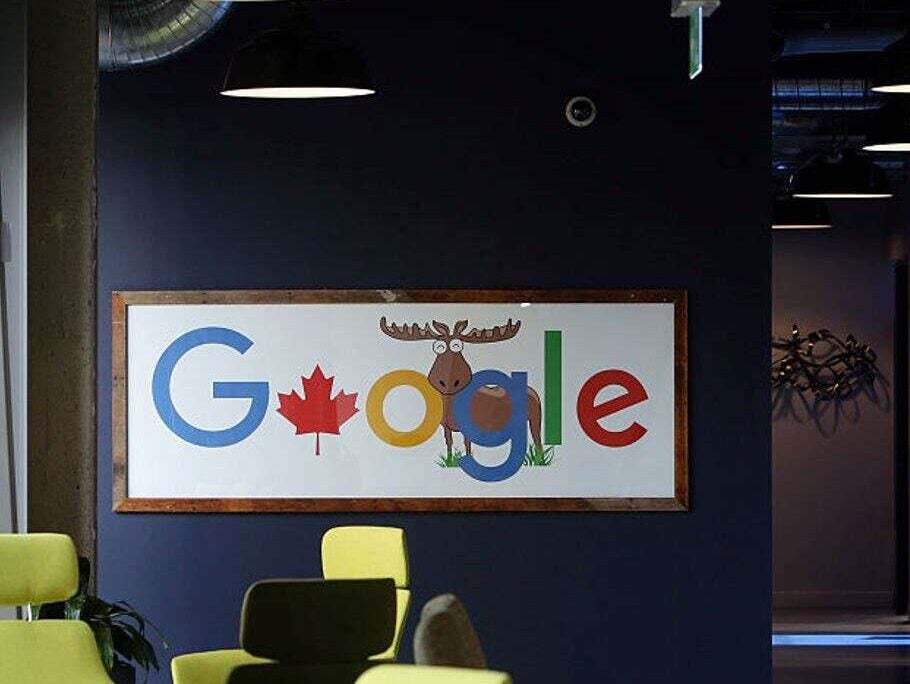
Google has agreed to pay CA$100m to news publishers in Canada following a long battle over payments for their content in search.
Facebook and Instagram owner Meta is resisting demands that it should also pay publishers for content, having removed all news content from its platforms in Canada in August.
Canada passed its Online News Act, which seeks to force Google and Facebook to pay publishers for news, in June and will come into effect in its entirety by 19 December – under three weeks away.
Following in the footsteps of Australia’s News Media Bargaining Code, Canada’s Online News Act contains a bargaining framework designed to ensure dominant tech platforms fairly compensate news businesses for their content when it is made available on their services.
Both of the biggest tech companies in online advertising, Google as the dominant search provider and Meta as the largest social media company, opposed the legislation.
Google had said in June the act required “two companies to pay for simply showing links to news, something that everyone else does for free” and that it “exposes us to uncapped financial liability simply for facilitating Canadians’ access to news from Canadian publishers”.
Google informed the government it would remove links to Canadian news outlets in search, Google News and Google Discover when the law came into effect and it would end its Google News Showcase product, which involves paid deals with publishers, in the country.
It did trial blocking around one million people from accessing Google News in February amid its campaign against the Online News Act, likely affecting more than one million people.
However Google on Thursday thanked the Canadian government for “acknowledging our concerns and deeply engaging in a series of productive meetings about how they might be addressed”.
Its requests, as previously highlighted, were for “clarity on financial expectations platforms face for simply linking to news, as well as a specific, viable path towards exemption based on our programs to support news and our commercial agreements with publishers”.
The contribution it will make to the industry of CA$100m (£58.3m/US$73.6m) per year, rising in line with inflation, is significantly lower than previous government expectations.
Google can allocate it through a deal with a single collective of its own choosing rather than having to settle with publishers directly or individually.
The agreement means it will continue to send traffic to publishers, which according to Google is worth CA$249.7m (£145.5m/US$184m).
It was reported in September that Canadian officials estimated that Google would need to pay CA$172m to satisfy criteria under the Online News Act, with a further CA$62m from Meta.
In Australia, content licensing deals with both Google and Meta under the News Media Bargaining Code are believed to be worth more than AU$200m a year (£106m/US$145m at time of Press Gazette report in 2022) to Australian publishers – double what the Canadian industry will now get from Google, the bigger platform, alone.
And a recent research paper estimated that Google and Meta could owe American publishers up to $14bn a year under the proposed Journalism and Competition Preservation Act in the US which follows a similar premise to the Australian and Canadian legislation.
Similarly in the UK, the Digital Markets, Competition and Consumers Bill is making its way through Parliament.
Canada minister says Google deal ‘will benefit the news sector’
The Canadian government said that as well as committing a chunk of cash to compensate news publishers, Google has also provided assurances that it will continue providing training, tools and resources for Canadian news businesses and that they will continue to be treated commensurately with those in other countries.
Pascale St-Onge, minister of Canadian heritage, said in a statement: “Following weeks of productive discussions, I am happy to announce that we have found a path forward with Google for the implementation of the Online News Act. This will benefit the news sector and allow Google to continue to play an important role in giving Canadians access to reliable news content.
“As part of this framework, Google will contribute $100 million in financial support annually, indexed to inflation, for a wide range of news businesses across the country, including independent news businesses and those from Indigenous and official-language minority communities.
“Google will have the option to work with a single collective to distribute its contribution to all interested eligible news businesses based on the number of full-time equivalent journalists engaged by those businesses.
“A sustainable news ecosystem is good for everyone. News and journalism serve to inform communities, drive civic engagement and counter the rise of disinformation. Access to news helps Canadians fully benefit and participate in democratic society. With newsrooms cutting positions or closing entirely, the health of the Canadian news industry has never been more at risk.
“Our government has remained confident all along that this Act was a viable, equitable framework for news organizations and digital platforms.”
Meta was criticised for its decision to cut off Canadian Facebook users from news this summer as wildfires spread across the country, although it said it still allowed vital public service information to be shared.
It has shown no sign of agreeing a similar deal to Google at this stage with less than three weeks to go before the Online News Act, also known as Bill C-18, comes into effect.
Email pged@pressgazette.co.uk to point out mistakes, provide story tips or send in a letter for publication on our "Letters Page" blog
